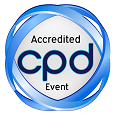
Sergey N Krylov
York University, Canada
Title: Kinetic separation with MS detection: a “Swiss Army Knife†in selection and characterization of drug leads
Biography
Biography: Sergey N Krylov
Abstract
The slowing discovery of new chemical entities in small-molecule drug development calls for disruptive approaches in drug discovery. Among such approaches is selection of drug leads from ultra-diverse (>109 different structures) combinatorial libraries. However, such selections as well as kinetic characterization of selected molecules constitute ultimate analytical challenges: They require ultra-efficient separation without immobilization, highly-selective detection without labeling, and data deconvolution algorithms for extracting kinetic information. We are developing a novel conceptual platform “Kinetic Separation with MS Detection” for addressing these challenges. Uniquely, a single method of kinetic separation can be used for 3 major applications: Selection of drug leads and affinity probes from ultra-diverse libraries, kinetic characterization of binding of drug leads and affinity probes to their protein targets and the use of affinity probes in disease diagnostics. We dub this multi-blade tool an Analytical Swiss Army Knife. The concept of kinetic separation has been proven for 2 modes of separation: Capillary electrophoresis and size-exclusion chromatography. We are now developing the application of kinetic separation to development of drug leads from libraries of DNA-encoded small molecules and affinity probes from random DNA libraries. In this lecture, the fundamentals of kinetic separation will be explained and examples of its practical use for selection and characterization of drug leads and affinity probes will be presented. Prospective of the utilization of kinetic separation in the pharmaceutical industry and academic research will be discussed.

